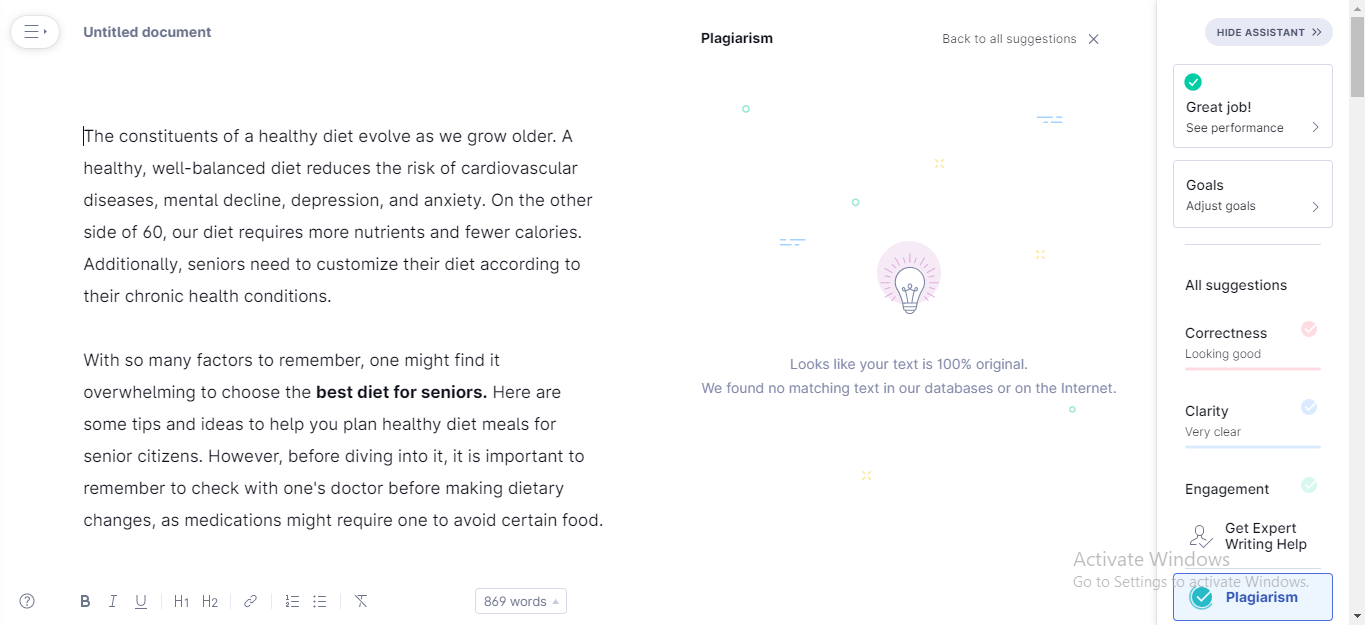Comprehensive Nutritional Strategies for Aging Adults: A Guide to Senior Health and Wellness
This comprehensive guide provides essential nutritional strategies for seniors, emphasizing balanced diets rich in protein, fiber, healthy fats, and hydration. It offers practical tips for meal planning tailored to aging adults’ health needs, aiming to enhance overall wellbeing, prevent chronic diseases, and promote active aging. Consulting healthcare professionals is recommended to personalize dietary choices effectively.

Comprehensive Nutritional Strategies for Aging Adults: A Guide to Senior Health and Wellness
As individuals age, their nutritional requirements undergo significant changes, making proper diet essential for maintaining health, vitality, and independence. An optimal nutritional plan tailored for seniors can play a pivotal role in preventing chronic illnesses, supporting mental clarity, and enhancing overall quality of life. Proper meal planning involves more than just choosing healthy foods; it requires understanding specific nutrient needs, portion control, and preferences to suit individual health conditions. This extensive guide delves into effective dietary strategies designed to promote healthy aging and discusses practical tips for crafting balanced, nutrient-rich meal plans tailored for seniors.
Understanding the dietary nuances associated with aging allows seniors and caregivers to make informed decisions. Whether managing chronic conditions like hypertension, diabetes, or osteoporosis, or simply aiming to sustain energy and cognitive function, a thoughtfully designed diet is indispensable. Consulting healthcare professionals, including dietitians and physicians, is crucial before making significant dietary changes, especially when managing existing health issues. This comprehensive approach will cover essential nutrients, food choices, eating habits, and lifestyle adjustments to help seniors attain optimal health.

Prioritize Protein for Maintaining Muscle and Immune Function
Protein intake becomes increasingly vital with age, playing a key role in preserving muscle mass, strengthening the immune system, and preventing frailty. According to nutrition experts like registered dietitian Amy Campbell, seniors should ensure they consume sufficient high-quality proteins daily. As aging can lead to decreased appetite and difficulty chewing, incorporating easier-to-digest plant-based proteins such as lentils, chickpeas, beans, and tofu can be highly beneficial. For breakfast, seniors can enjoy oatmeal topped with nuts, seeds, and fresh fruits, or smoothies blended with greens and yogurt. Main meals may include lean meats, seafood, or plant-derived proteins to meet daily requirements.
Reduce Consumption of Empty Calories for Better Energy and Weight Management
Seniors should aim to limit foods that provide calories with little or no nutritional value, such as candies, baked goods, chips, and sugary beverages. Prioritize nutrient-dense foods like fresh fruits, vegetables, whole grains, lean meats, and healthy fats. Healthy fats from sources like olive oil, avocados, and nuts are crucial for brain health and cardiovascular function. Replacing saturated fats and trans fats found in fried foods and processed snacks with healthier options benefits overall health. Incorporate naturally sweet foods—like fruit and yogurt—to satisfy sweet cravings without excess sugar intake.
Limit Salt Intake to Manage Blood Pressure and Cardiovascular Risk
High sodium consumption is a common issue among seniors, increasing the risk of hypertension and related heart diseases. Cooking with less salt and avoiding highly processed, canned, or cured foods like deli meats and soy sauce help manage salt intake. Instead, flavor dishes with herbs, spices, lemon juice, and vinegar. For example, a chicken and vegetable sandwich on whole-grain bread or a quinoa salad with fresh herbs can be both delicious and heart-friendly. Monitoring sodium intake is especially vital for seniors with existing hypertension or cardiovascular conditions.
Increase Dietary Fiber for Digestive Health and Heart Disease Prevention
Fiber-rich foods support effective digestion, maintain bowel regularity, and help lower blood cholesterol levels, reducing the risk of cardiovascular diseases. Incorporate foods high in fiber such as oats, barley, beans, lentils, nuts, seeds, and a variety of fruits and vegetables. Whole grains should replace refined grains in breakfast cereals and bread. Including dried fruits like apricots or figs, along with fresh produce, aids in achieving recommended fiber goals. Adequate fiber intake also assists in blood sugar regulation, particularly important for seniors managing diabetes.
Stay Well-Hydrated to Prevent Dehydration and Maintain Vital Functions
As people age, their sense of thirst diminishes, increasing the risk of dehydration, which can negatively impact cognition, kidney function, and overall health. Seniors should aim to drink at least eight 8-ounce glasses of fluids daily, adjusting based on activity level and medical advice. Incorporating flavored water, herbal teas, and water-rich fruits like melons, cucumbers, and oranges makes hydration more appealing. Consistent hydration supports digestion, circulation, temperature regulation, and medication efficacy.
Incorporate Omega-3 Fatty Acids and Calcium for Brain and Bone Health
Omega-3 fatty acids are crucial for reducing inflammation, supporting brain function, and protecting against age-related cognitive decline. Rich sources include oily fish such as salmon, mackerel, and sardines, along with plant sources like walnuts, flaxseeds, and chia seeds. Calcium is essential to maintain strong bones and prevent osteoporosis; great sources include low-fat dairy products, leafy greens such as kale and collards, and canned fish with edible bones like sardines and salmon. Meal ideas include baked salmon served with steamed greens or chicken stir-fried with vegetables and a sprinkle of sesame seeds.
In conclusion, seniors can greatly benefit from personalized, well-balanced meal plans emphasizing adequate protein, fiber, healthy fats, and hydration. Combining this nutritional foundation with regular physical activity, adequate rest, and social engagement supports an energetic and healthy aging process. Engaging with healthcare providers or nutrition specialists ensures that dietary choices align with individual health needs, enhancing quality of life in later years.





